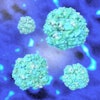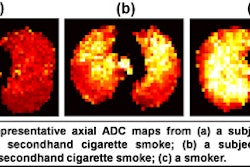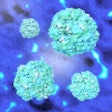The use of MRI for the diagnosis and staging of breast cancer remains controversial, with some clinicians advocating for its use and others claiming that its value is unproven. Despite all this attention, whether breast MRI positively influences surgical outcomes in women with diagnosed breast cancer has not yet been studied extensively.
Researchers at the University of California, San Diego (UCSD) conducted a study that sought to address the question of how preoperative MRI affects mastectomy rates, lumpectomy negative margin rates, and time to surgery in women with known breast cancer. Dr. Christopher Comstock and colleagues presented their findings at the 2007 RSNA meeting in Chicago.
"In multiple studies, pre-operative MRI has been shown to change surgical management in a significant number of patients," Comstock said. "Critics are concerned that the use of the modality has the potential to increase mastectomy rates and delay surgery. We wanted to address this issue in our study."
The group performed a retrospective review of patients with core biopsy-proven breast cancer who had surgery at the UCSD Medical Center between 2000 and 2006. Surgical outcomes and surgery results of the 481 patients identified were recorded, and radiology records were examined to find patients who underwent pre-operative MRI.
The bilateral dynamic contrast-enhanced MRI protocol used by Comstock and colleagues employed a 1.5-tesla scanner to acquire fat-saturated axial images in a 348 x 512 matrix, with 88 slices at 1.6 mm slice thickness, and five post-contrast, one-minute sequences.
Even though the use of pre-operative MRI in women with known breast cancer has skyrocketed, Comstock found that UCSD Medical Center's mastectomy rate remained stable in the six years evaluated by the study. The lumpectomy negative margin rate increased among women who had preoperative MRI as compared to women who did not (80% as opposed to 75%).
The group also found that preoperative MRI didn't significantly delay the time to surgery in patients who had it: on average, about 12 calendar days from core biopsy to surgery.
In answer to an RSNA attendee's question about whether Comstock and his group had tried to schedule the surgeries around the women's menstrual cycles, Comstock responded that although attempts were made to schedule surgeries during the second week of the menstrual cycle, there were some cases that could not be scheduled during that window and had confounding factors that could have been due to estrogen.
He also acknowledged that the cancers that had been imaged pre-operatively with MRI tended to be more complicated, and said that his group is now breaking down the data by surgeon and tumor size to tease out this particular factor.
In a related presentation, French researchers from the Centre Hospitalier Régional and University of Nice sought to evaluate the usefulness of MRI for invasive lobular carcinoma (ILC), which often poses a challenge to radiologists. Dr. Thomas Caramella and colleagues studied 57 patients with histologically proven ILC between 1998 and 2006. All patients underwent physical examination, mammography, ultrasound, and MRI exams.
In 66% of the cohort, tumors were palpable. The majority of the mammograms had architectural distortion (36%) or mass (53%), most with spiculated contours. On the MR exams, 72% were visualized as masses and 18% corresponded to a nonmass-like enhancement. The group found that MRI had a sensitivity of 100% and a specificity of 87%, and concluded that MRI provides accurate estimates of tumor size for ILC, and is sensitive for multifocal/multicentric disease.
By Kate Madden YeeAuntMinnie.com staff writer
December 27, 2007
Related Reading
Breast MRI comparable to mammography for detecting later cancers, November 25, 2007
Breast MR centers must look beyond imaging and offer universal care, November 2, 2007
MRI beats US for breast screening of at-risk women, but yields more biopsies, August 6, 2007
Breast MRI helps guide surgical treatment, May 22, 2007
MRI becoming more efficient in breast cancer detection, May 18, 2007
Copyright © 2007 AuntMinnie.com





















